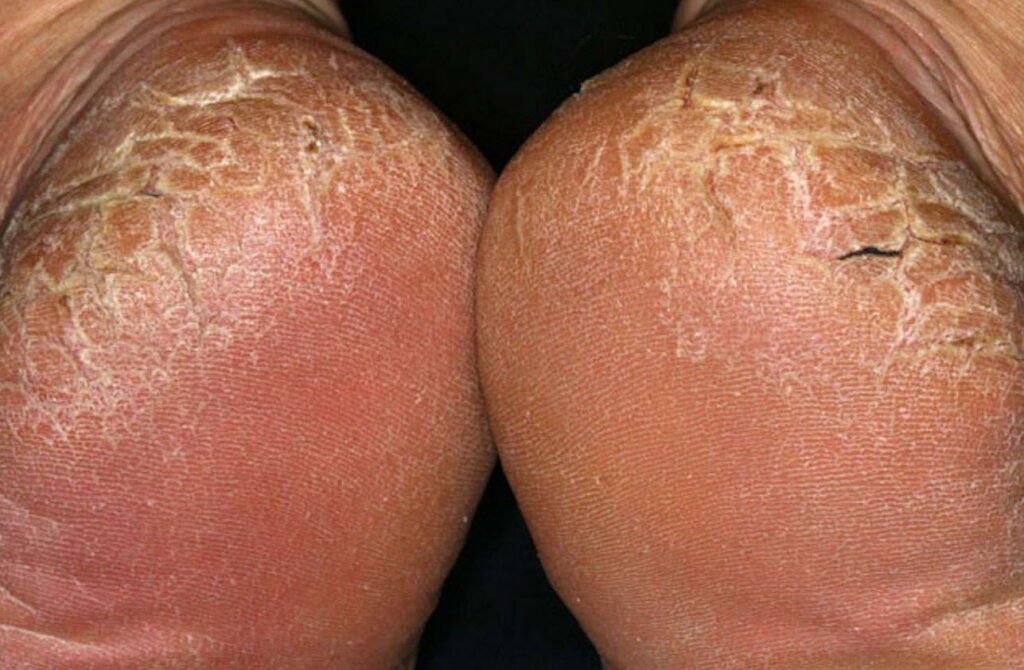Skin fissures, those tiny but painful cracks that often develop on dry, calloused areas of the skin, can be an uncomfortable and unsightly issue to deal with. These fissures are essentially small cuts or cracks that form as the skin loses its natural moisture and elasticity. They most commonly occur in areas such as the heels, fingertips, and between the toes.
Understanding their causes and effective treatments is key to keeping your skin healthy and pain-free.
Causes of Skin Fissures
Skin fissures almost always originate from dry skin, and several factors can exacerbate this issue:
- Weather Conditions: Living in a cold, dry climate can lead to skin dryness, making you more susceptible to fissures. Cold, low-humidity air can rob your skin of its natural moisture.
- Overuse: Skin areas that are frequently subjected to friction or washing are more prone to drying out. The constant use of these areas, such as hands or feet, can lead to a loss of moisture and eventual fissures.
- Water Exposure: Paradoxically, frequent exposure to water, like regular handwashing, can also dry out your skin. It’s important to balance cleanliness with moisturization to prevent fissures.
- Nutritional Deficiencies: Vitamin deficiencies, particularly vitamins A and C, can lead to dry, itchy skin that is slower to heal. A well-balanced diet with these essential nutrients is crucial for maintaining healthy skin.
Effective Treatment for Skin Fissures
Addressing skin fissures promptly is essential to prevent them from deepening and potentially leading to bleeding or infection. Here are some effective treatments:
- Humectants: Humectants like glycerin and urea can draw moisture into the skin, helping to rehydrate and soften it. They work by retaining water in the skin’s outer layer.
- Occlusives: Occlusive agents such as beeswax and mineral oil create a protective barrier over the skin, locking in moisture and preventing further dryness.
- Emollients: Emollients like lanolin and propylene glycol linoleate act as lubricants that help smooth the crevices between skin cells. They can make the skin feel soft and supple.
- Home Remedies: In addition to commercial products, various natural oils like olive oil, coconut oil, avocado oil, oat oil, and almond oil can be used to keep your skin moisturized. Applying these oils regularly can help nourish your skin and prevent fissures.
Preventing skin fissures is often more manageable than treating them. It’s essential to maintain good skin care habits, including keeping your skin well-moisturized, especially in dry or cold conditions. Additionally, protect your skin from harsh chemicals and overwashing, and ensure you have a balanced diet to meet your nutritional needs.
In conclusion, skin fissures can be painful and unsightly, but with proper care and attention, you can keep your skin healthy and hydrated. Using the right treatments and maintaining a good skincare regimen, you can prevent fissures and enjoy soft, supple skin.



